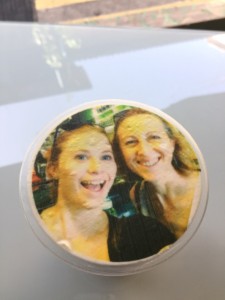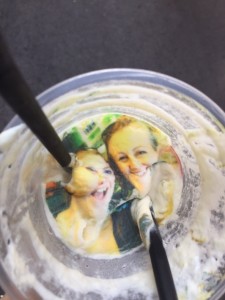Who: Brand owners operating in the consumables space
Where: England & Wales (N.B. that whilst the article cites international examples, the article will only comment on the laws of England and Wales).
Law stated as at: 2 November 2015
What happened:
Brand-owners are increasingly harnessing the power of technology to deliver affordable, often immediately-consumable products which are personalised to the end user. Recent famed examples include The Coca-Cola Company’s ‘Share a Coke’ campaign and Ferrero’s ‘your Nutella – your way’ campaign.
This article discusses some of the potential legal and business risks associated with the personalisation trend, and how best to navigate those risks.
1.1 Weakening your brand / ‘de-branding’
Taking ‘Share a Coke’ as an example, Coca-Cola dropped their product names from their packaging and replaced them with common names of people in each relevant target market, emblazoned in the renowned Coca-Cola font (albeit a slightly amended one for the purpose of the campaign).
In doing so, they took a calculated risk in de-branding. This paid dividends for Coca Cola but less-renowned brand-owners should think carefully before gambling with their established good will. Any erosion of brand or discontinued use of a mark may invite competitors into that market space and render any future action for passing off or trade mark infringement more challenging.
1.2 Damage to the brand
The ‘Share a Coke’ campaign was not without controversy. In South Africa, consumers were permitted to order customised Coke bottles with their chosen inscription. However, whereas a bottle with “Straight” printed on it was permitted, inscribing the word “Gay” was not.
This led to uproar from the LGBT community and an apology from Coca Cola.
Similarly, when Ferrero launched its personalised Nutella product in Australia, consumers generated labels in Nutella font which read ‘diabetes’, and these apparently circulated widely on social media.
When facilitating consumer interaction with branded goods, businesses should think carefully about the software they use to facilitate this. Safeguards should be built in to prevent offensive or embarrassing slogans from being branded across their products. Not only could this be detrimental to a brand, it may also expose companies to action by regulators such as, in the UK, the Advertising Standards Authority.
Also, rogue consumers may abuse a brand come what may. Companies should reserve the right to pursue such abusers through legal means if the situation warrants. In order to do this, brand-owners should ensure a strong arsenal of IP protection before the launch of personalised products. Registering all IP rights capable of registration, tying customers into end user licences or set terms and conditions, and displaying notices of reservation of rights on platforms will assist any future claim.
1.3 Intellectual property rights in user generated content such as photographs and text
‘#Selfie Coffee’ is a coffee shop franchise operating in Malaysia and Singapore. Customers take a ‘selfie’ and the resulting image is printed in colour on top of the foamed milk (see inset). Similarly, Boomf Limited print customers’ photographs in colour on top of edible marshmallows.
Questions arise as to ownership of the copyright in the photographs or text. The default position is that users will have copyright in their creative works (be it photographs, text or otherwise). Brand-owners should be mindful that they are not necessarily free to exploit user-generated content without the express consent of their customers.
Brand-owners should utilise click-wrap agreements which should assign copyright and / or allow for user-generated content to be used freely by the brand-owner (under a royalty-free licence, for instance). This can be done at, or prior to, the point of purchase, either online or via a tablet in-store where products are created instantly, thus allowing brand-owners to freely distribute content for marketing or other purposes.
This right could be particularly valuable if, for instance, a celebrity purchased a personalised product, or if a customer created a clever label and the brand-owner wished to market this more widely. Ensuring that all rights in content are given freely or assigned by the customer will assist in hedging off any future copyright claims from disgruntled users whose content is commercially exploited.
Conversely, brand-owners should be amenable to ‘taking down’ content from circulation should they receive a complaint from a consumer so as to avoid negative publicity.
Why this matters:
Whilst there are numerous legal and business risks to navigate, the potential rewards of an effective personalised consumables campaign can be significant. Coca Cola stated that, during its 2014 Share a Coke campaign, there were:
- “998 million impressions on Twitter
- 235,000 tweets from 111,000 fans using the #ShareaCoke hashtag [and]
- More than 150 million personalised bottles sold.”
Personalised campaigns may enable brands to build customer loyalty, improve public perception and increase sales. They also provide brand-owners with unprecedented levels of personal data directly from their consumers.
Provided businesses put the requisite checks and balances in place to ensure compliance with their legal (and moral) obligations, the benefits of personalisation will hopefully outweigh the risks for brand-owners.
[(Images used with consent of Natasha Howitt (featured in picture with Carina Howitt) – taken in branch of #Selfie Coffee, Singapore)]










